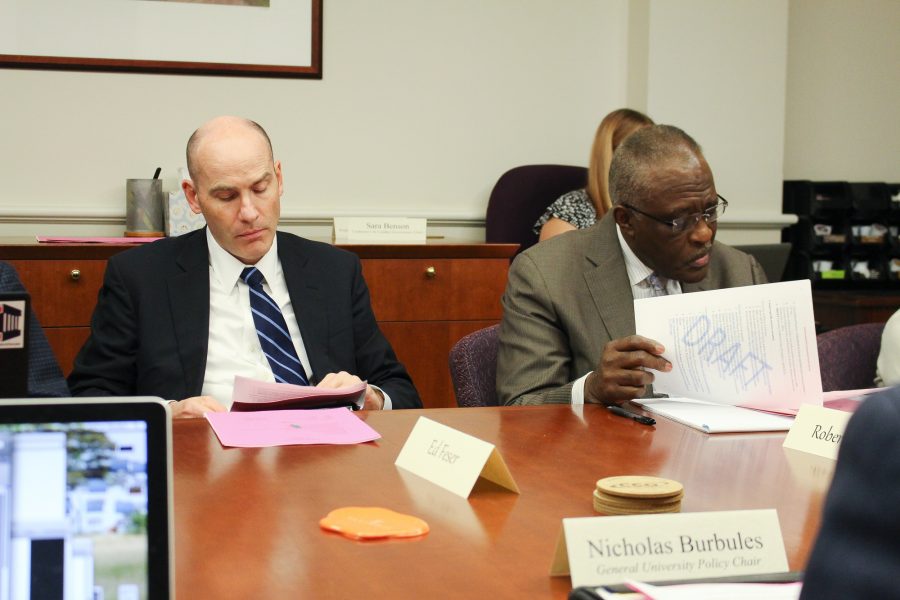Faculty health insurance still up in the air
Chancellor Robert Jones and Interim Vice Chancellor for Student Affairs and Provost Ed Feser go over documents at the Senate Executive Committee meeting on Monday.
Oct 12, 2016
Last updated on Oct. 27, 2016 at 12:32 a.m.
The cost of student health insurance will potentially increase by more than 12 percent next fall. McKinley Health Center Director Dr. Robert Palinkas announced at the Illinois Student Senate meeting that this is due to the increasing national costs of health care.
McKinley Health administration was informed by their insurance underwriter that the insurance company is losing money on University students because the current premiums are so low, Palinkas said.
As of now, the cost of the plan is $320 a semester for undergraduates and $409 a semester for graduate students. This price increase will affect the 26,000 students that are currently on the University insurance plan.
“It’s not a huge price increase for some students,” said Alex Villanueva, senior in LAS student and vice president external of Illinois Student Senate. “But for some students, this will break the bank.”
Get The Daily Illini in your inbox!
Palinkas discussed some ways in which the University can resist the price increase including potentially requesting new proposals for student health coverage which would allow McKinley to look for other insurance companies to see if they can get a better deal through them.
“We need insurance with a really tailored plan, because we need (low deductibles),” Palinkas said.
Throughout his presentation, Palinkas stressed the importance of insurance and mentioned how this year, more students than ever had their parents’ insurance denied, making the reliance on student insurance even greater than before.
“We were actually detecting large amounts of students who are actually uninsured,” he said. “Three thousand five hundred students wanted a waiver (so they would not have to use the University insurance) but only half got the waiver.”
Although McKinley has not decided officially what they will do to try to keep premiums down, Palinkas is hopeful the University can maintain its good health care status.
The fee students pay to McKinley each year and the cost of the University health insurance combined is the lowest in the Big 10 by a huge factor, he said.






